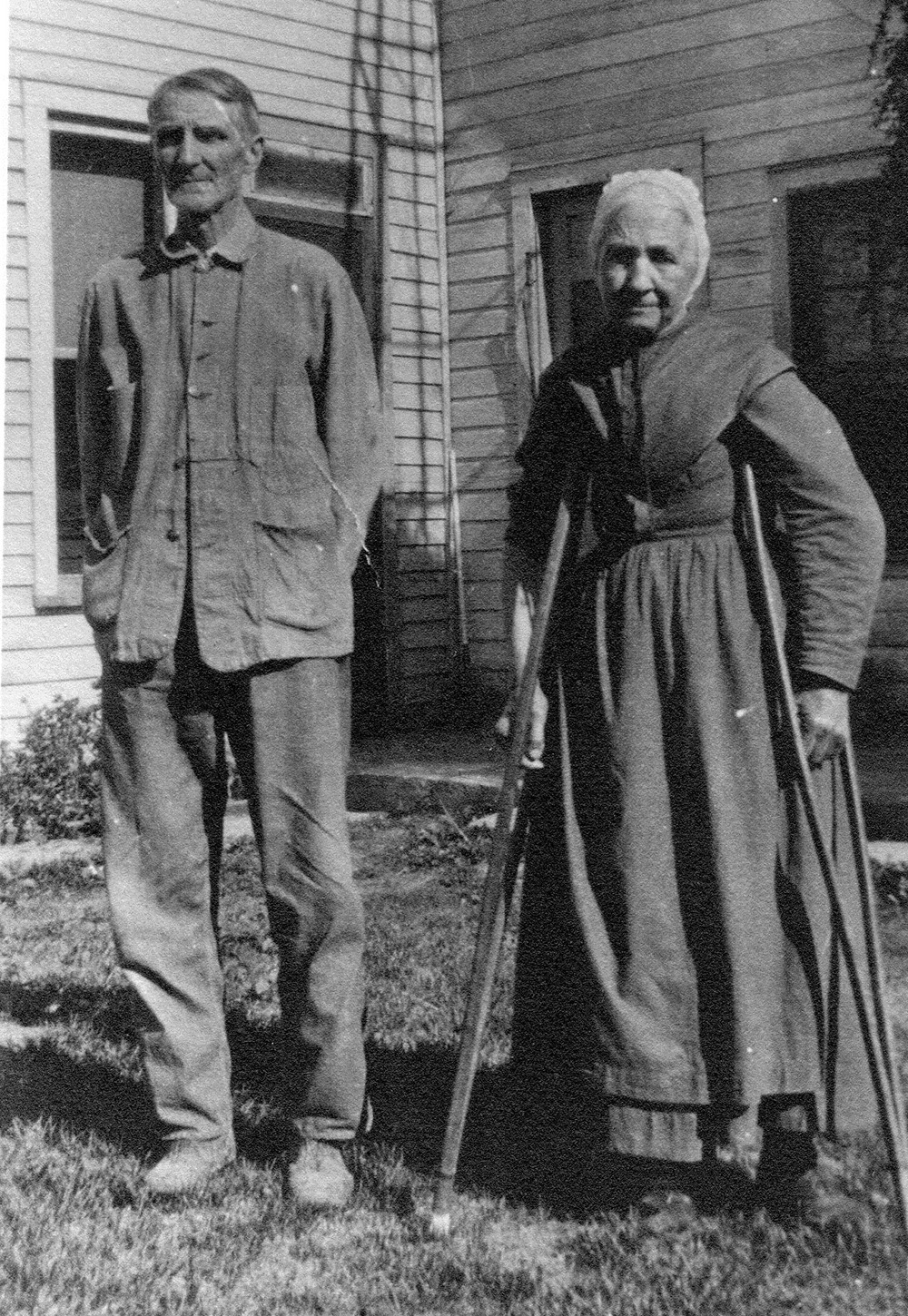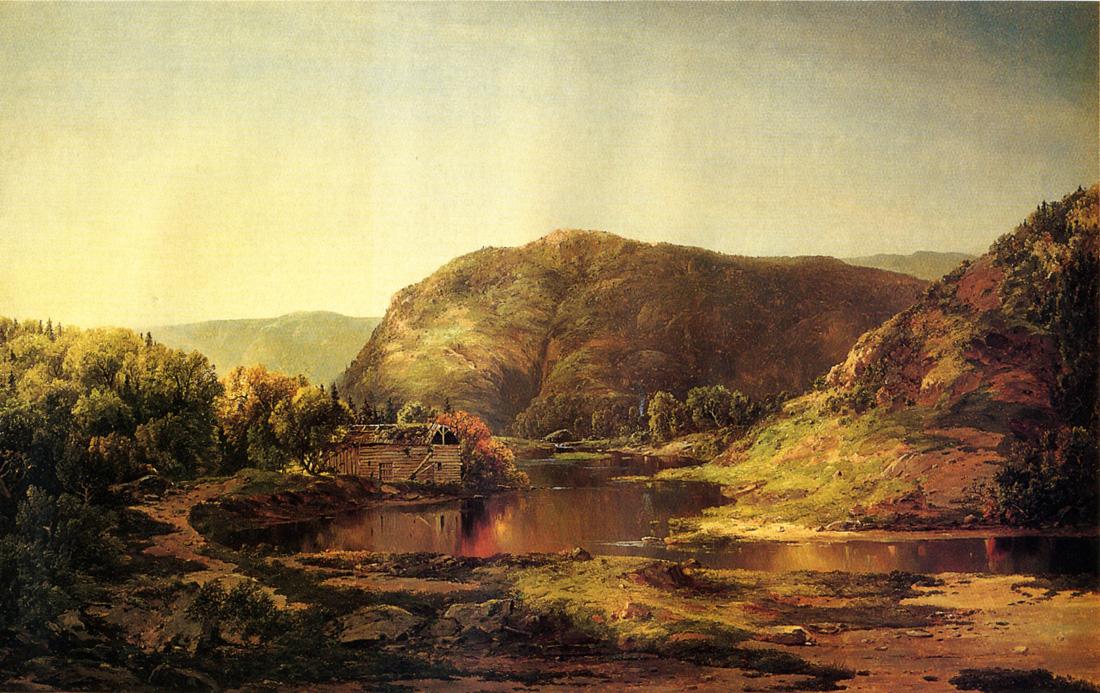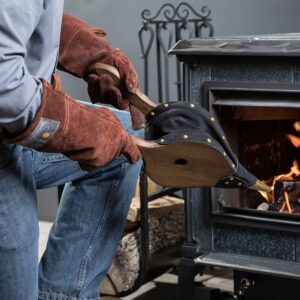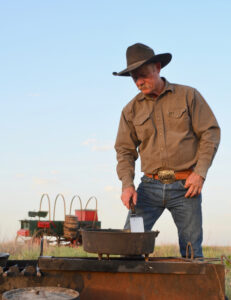 Editor’s Note: Weary of the current news? Take a break and read Dave Ross’s fascinating story of his great-great-grandfather (a Mennonite farmer) and a harrowing escape to Ohio! We thought it was too good not to share.
Editor’s Note: Weary of the current news? Take a break and read Dave Ross’s fascinating story of his great-great-grandfather (a Mennonite farmer) and a harrowing escape to Ohio! We thought it was too good not to share.
Abraham P. Good was born on September 22, 1823 in Rockingham County, Virginia. At the age of twenty-two, he married Rebecca Rhodes, daughter of Henry and Elizabeth Rhodes. Abraham was a Mennonite farmer, and together with Rebecca, began his family in the Shenandoah Valley, a few miles west of Harrisonburg.

In the fall of 1864 he moved his family from Rockingham County, Virginia, living briefly near Fairfield, Ohio, then taking up residence in Putnam County, Ohio, and then moving to Allen County three years later. He was known as “Virginia Abe” after the move, to distinguish him from Abraham A. Good, who also lived in the same community of Elida, Ohio. He died on March 12, 1892.
It is thought that Abraham was one of those who helped people escape from the Shenandoah Valley of Virginia during the Civil War. He made at least two trips to Ohio while the war was in progress. This fact became known to the authorities in Richmond, and they sent word to Harrisonburg that Abe Good should be brought to Richmond “dead or alive.”
A Confederate officer, along with a small detachment of troops, went to the Good homestead and confronted Abe. The officer asked him if he had indeed been to Ohio and Abe replied that he had made two or three trips to Ohio during the course of the war, but that he had not carried war news. The officer then informed Abe that he had orders to take him to Richmond, “dead or alive.” Abe knew if he went to Richmond he would be executed, so he told the officer, “you must take me here,” and lay down on the couch.
The officer pulled his pistol and roughly pushed it to Abe’s ribs, backed away and then poked the pistol to his ribs again. The officer then stated that if he must execute this man, there must be another officer present for a witness. So he sent a soldier to bring in another Confederate officer.
When the officer arrived he said, “Mr. Good, what is the problem here?” Abe replied, “This man has come to take my life because I have been to Ohio during the War.” Abe further explained that he had been to Ohio to visit friends, but that he had never carried any war news. The second officer then said, “I have known Mr. Good my entire life and can vouch for him. If he says he never aided the Union cause, it is so.” This was enough to convince the first officer that there was no reason to carry out the execution.
Shortly after this incident, Abraham* and his wife Rebecca decided they must leave Virginia, and sold their belongings. It was about eight months before the end of the war and they, together with the families of Melchiah Breneman (who was deserting the Confederate Army), George Brunk, and Simon Cooper, packed their wagons and prepared for the journey.
They decided it would be best to travel under cover of darkness. There were still a few head of sheep to dispose of, so on the day of their departure Abe sent his thirteen-year-old son Henry** to sell the sheep at the market in Harrisonburg – giving him strict instructions as to when they would be leaving. Henry was late coming home from the market and Abe felt it was not safe to wait any longer for his return, so the families set out on the journey without him.
When Henry arrived home, he saw that the wagons had already left, so he ran in the direction he thought they must have taken. He was able to catch up with the last wagon, jumped into the back of it without informing the driver, and fell asleep. Abe stopped the procession for a rest when he felt it was safe, but was very distraught over having been forced to abandon his son. As he was checking over the wagons during the stop, he discovered Henry sleeping in the back, and the family was reunited.

After three years of war, in which the Shenandoah Valley was alternately in the hands of the Union and the Confederacy several times, these families chose to flee, and made a dangerous trip through the mountains to West Virginia, and safety. This was just before General Sheridan’s march through the Shenandoah Valley in October of 1864, in which he ordered his Union troops to burn and destroy all mills, barns, crops, forage, and livestock. Seven months after this total destruction, the war was over. (May of 1865) By then our ancestors had settled in the fertile region of western Ohio, and began life again.
At the time of his death in 1892, Abraham had accumulated many acres of farmland. His last will and testament designates to his “beloved wife Rebecca,” 330 acres of land in Allen County, Ohio, 80 acres in Vanwert County, Ohio, and another 120 acres in Rockingham County, Virginia – presumably the farm he had left behind 1864. It was located near the small town of New Erection, about four miles west of Harrisonburg.
*Initially, Abraham was not required to serve in the Civil War, because in1862 when the draft began, he was thirty-eight years old, and past the age of conscription – which was 18 to 35. But by 1864, the Confederate Army was so desperate for soldiers that the ages for enrollment became 17 to 50, with requirements for active duty for men ages 18 to 45. As some Shenandoah Valley Civil War articles state, “every able-bodied man in Virginia was conscripted to participate.” They had three choices: To bear arms and fight, to be a non-combatant participant such as a blacksmith or medic, or flee to a Union state. (Certain occupations were exempted, but farmers like Abraham, and most of the other Mennonites in the Valley, were not. Also, a very wealthy person could pay a substitute to go in their place.) It seems that this increase in age for the draft must have been a deciding factor in Abraham’s decision to leave the valley. By this time he was forty years old, and would certainly have been conscripted.
**According to the “Biographical History of Allen County, Ohio,” our Great-Grandfather Henry Good, who nearly missed his ride to Ohio, “had a vivid recollection of the marching soldiers and cannonading and smoke that prevailed in the Shenandoah Valley during the devastating raids of both armies.” The same article goes on to say: “Mr. Good is a practical and successful farmer and a gentleman of modest behavior and truly Christian principles; he is self-made and has accumulated his possessions through his own manual labor and good management, winning the respect of all who know him. He and his amiable wife have given their children good educations and reared them to moral and industrious habits.”
Author’s Note: Much of this information comes from the “Abraham P. Good and Rebecca Rhodes Good Family” genealogy book, with additional details gleaned from research on the Civil War history of the Shenandoah Valley in Virginia.































I enjoyed your Abraham Good posting very much. His wife, Rebecca Rhodes, was a sister to Henry H. Rhodes, who is a main character in my new book, Peggy’s War. While her husband (Henry) was dying, Peggy — my great-great-grandmother — ran a busy depot on the underground RR for Mennonites and Dunkers in the Shenandoah Valley.